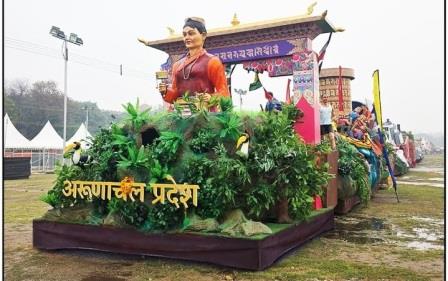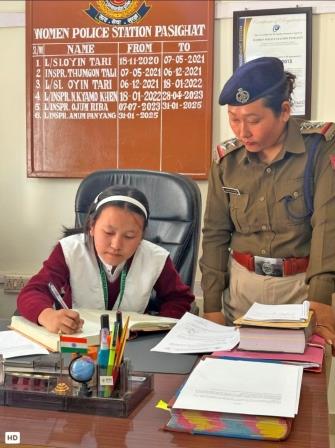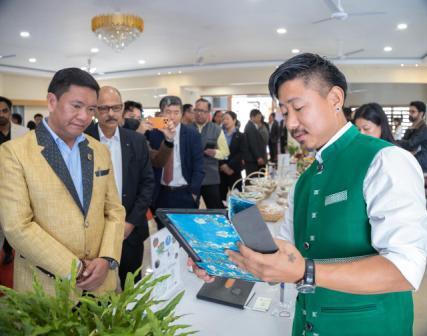-
 Arunachal tableau on R-Day spotlights state’s emergence as Adventure Capital…
Arunachal tableau on R-Day spotlights state’s emergence as Adventure Capital…
-
Etalin marks National Voters’ Day, encourages youth participation in democracy
-
Sona reviews PMGSY, VVP projects in Itanagar Circle
-
Lok Bhavan celebrates UP Diwas
-
 KGBV student leads WPS Pasighat on National Girl Child Day
KGBV student leads WPS Pasighat on National Girl Child Day
-
Meritorious students felicitated on National Girl Child Day
-
Awareness on POCSO held as part of National Girl Child…
-
Anini certifies 79 Nature Guides on National Tourism Day
-
 Startup success stories reflect potential of state’s youth: CM
Startup success stories reflect potential of state’s youth: CM
-
 Mein participates in vintage Willys Jeep Rally, inaugurates World War…
Mein participates in vintage Willys Jeep Rally, inaugurates World War…
Disadvantages of shifting cultivation or jhum as it is known traditionally in Northeast has been argued by agricultural scientists for long. In recent years, the topic has pulled extra attention since environmental degradation is a big issue. Among all causes that contribute to imbalance in the overall ecosystem, it’ jhum that is frequently singled out. Despite several efforts, this primitive form of cultivation is still prevalent primarily due to factor that centres around the economics aspect. Although farmers are often appealed to discard it, they simply cannot comply with the call due to the hard existential realities concerning livelihood. It has been felt many times that unless the farmers are given with better and alternative sustainable choices of farming well within the ambit of agriculture itself, nothing voluntary will come in the way and this harmful system will show little signs of getting minimised. There is thus need to reach out to these farming communities with comprehensive and economically acceptable substitutes that should also invariably involve the aspect of training and other allied ones to make the switch-over as much glitch-free as possible. The on-going Residential Training Programme on Scientific cultivation of Tea, nicknamed ‘Chai Paathshaala’ is thus a good initiative since it has addressed the problem, transcending well beyond a seminar-level initiative to something that touches the actualities.
Tea is undoubtedly the most consumed beverage of the country and a major part of world too. It needs hardly any elaboration regarding its commercial viability since there will always be steady and constant markets within and outside India that are thankfully growing. It is that cash crop that has made Assam and Darjeeling world famous, a great earner of revenue for the exchequer and a reliable provider of employment to millions. Tea hasn’t picked up pace in Arunachal as it should have been and now that the process has started, even if arising out of a vital compulsion of saving environment, it is expected that the seriousness is carried forward. The greater goal should be not just to float an alternative to jhum, but to carve a niche in the big tea market with long-term plans of action. If the wide varieties of organic produce of the state are catching wide attention, ‘organic tea’ can no doubt turn out to be a big bet if pursued with vigour.
The core goals of this initiative can only be realised if it is not viewed as an one-time approach with the linkage between administration and beneficiaries made a continuous process in the coming days. It will be further appreciable if it’s taken up as a model case which might actually act as a benchmark for similar alternative agricultural endeavours in state.

Kenter Joya Riba
(Managing Editor)She is a graduate in Science with post graduation in Sociology from University of Pune. She has been in the media industry for nearly a decade. Before turning to print business, she has been associated with radio and television.
Email: kenterjoyaz@easternsentinel.in / editoreasternsentinel@gmail.com
Phone: 0360-2212313

